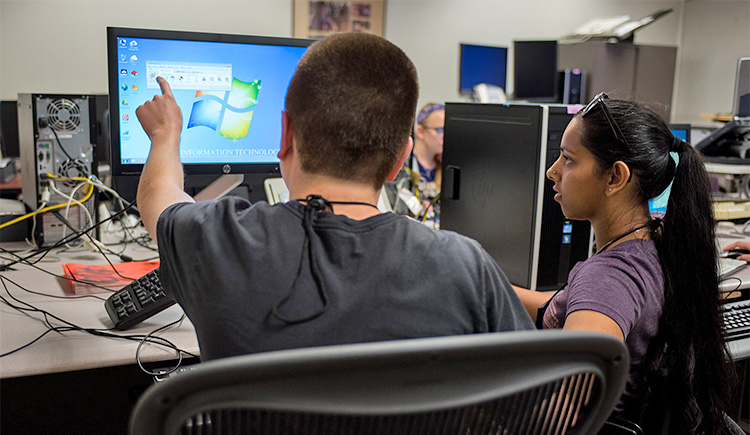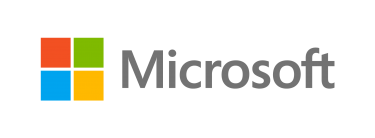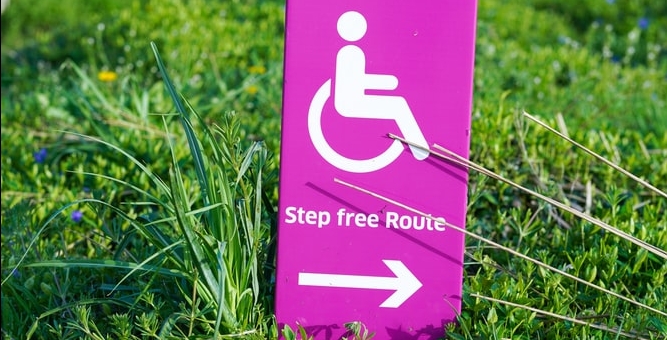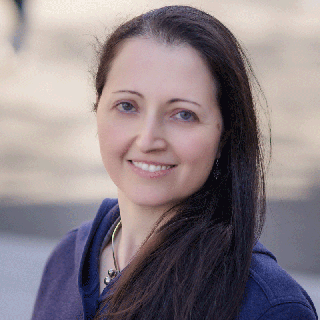UW is an established leader in accessibility with local, national, and industry impact. Microsoft is proud to sponsor and support the formation of CREATE and champion its mission to work with, understand, and assist people with disabilities, and develop accessible technologies for and with them that positively impact them. UW has a long history of programmatic investments in disability inclusion and accessibility, and CREATE will bring together these areas of excellence. A few proof points include:
UW is committed to empowerment, equity and impact for people with disabilities
UW is one of the few universities nationwide with a Disability Studies department, with one faculty member serving as a CREATE co-founder. Furthermore, multiple CREATE faculty don’t just develop technology, they critically examine it, working to give the disability community a greater voice toward making a more inclusive world.
UW’s impact on expanding opportunities for people with disabilities is already enormous
AccessComputing/Teach Access and AccessEngineering are all UW organizations that work to provide concentrated curriculum and other supports that help students with disabilities successfully pursue undergraduate and graduate degrees in STEM fields. The UW Taskar Center is committed to the translation and deployment of accessible technologies, as is the HuskyAdapt program which trains engineers to create real-world solutions to accessibility needs.
UW’s impact on consumers includes a track record of high impact projects
CREATE faculty helped to define the mobile experience for people who are blind, including screen reading and braille typing, and their work has already impacted the transportation experience of thousands by providing information about public transit, sidewalk safety, and accessible route planning. CREATE faculty also helped launch the first assistive technology and adapted toy lending library in the Pacific Northwest, and have engaged over 250 students in participatory and inclusive design practices.
UW and Microsoft are great partners
For example, UW and Microsoft actively collaborate on transportation accessibility. UW students frequently intern at Microsoft with successful results. UW has also proven to be a breeding ground for accessibility expertise – in the last five years, the Ability and Enable teams at Microsoft Research have hosted over a dozen Ph.D. UW student interns conducting accessibility research (and Microsoft Research has hired many UW Ph.D. alumni, including several specifically focused on accessibility and health research).
Now, Microsoft is proud to support UW’s goal to take their next step in accessibility innovation with CREATE. UW’s and Microsoft’s approach align in many ways, particularly considering their longstanding record of recognizing the untapped talent among the disability community and establishing an ecosystem of inclusion from which everyone stands to benefit.
Related news
The Future of Assistive Technology: A Panel Discussion
Anat Caspi participated in a panel discussion on the future of assistive technology and how recent innovations are likely to affect the lives of people with disabilities.
Accessible CS Education workshop focuses on inclusive experiences
Amid a global pandemic, innovative thinkers have been hard at work developing plans to improve equity in modern learning environments. The Accessible Computer Science Education Fall Workshop was held November 17-19, 2020, and jointly sponsored by Microsoft, The Coleman Institute for Cognitive Disabilities, and CREATE.
Each day of the event focused on strategies to improve classroom experiences for students and faculty with disabilities. You can watch recorded sessions where speakers provided a wide range of perspectives on computer science pedagogy and how to increase diversity, equity, and inclusion in computing disciplines.

Two students work together on a computer screen using accessibility tools.
The event provided an intimate environment to share work and establish new collaborations. The most visible result, for now, is five white papers and action plans taken from the break-out group reports (CREATE faculty contributors noted):
- Education for Employment Pathways (Caspi)
- Accessible Computing Education in Colleges and Universities (Steele)
- Accessible Tools and Curricula for K-12 Computer Science Education (Ladner)
- Reimagining Accessibility and inclusion in K-12 CS Education through curriculum and professional development (Ladner)
- Challenges to Inclusive and Accessible Prototyping, lsotyping and Production (Feldner)
The program resulted in more than conversations; each group developed formal white papers and action plans that will guide future research and collaboration.

Throughout the workshop, participants focused on four areas:
- Education for employment pathways
- Making K-12 computing education accessible
- Making higher education in computing accessible
- Building accessible hardware and systems.
Conversations generated ideas about technologies that can boost employment and assist people with disabilities who experience barriers in various learning environments.
The committee behind the event successfully cultivated a productive and inclusive atmosphere that sponsors hope will translate to future projects. Members of the committee include Andrew Begel, Heather Dowty, Cecily Morrison, Teddy Seyed, and Roy Zimmerman from Microsoft; Anat Caspi and Richard Ladner from UW CREATE; and Clayton Lewis from the University of Colorado Boulder.
Caspi to lead collaborative $11.45M Transportation Data Equity Initiative
February 3, 2021
Tools like Google Directions and OneBusAway give up-to-date travel and transit information to make regional transit easier for most. But mobility applications focus on efficiency and shortest paths, leaving out information critical to people with disabilities, older adults, and anybody needing more support.
The Taskar Center for Accessible Technology, led by CREATE Associate Director for Translation Anat Caspi, and the UW's Washington State Transportation Center will work with Microsoft, Google, the Washington Department of Transportation and other public and private partners to develop transit mobility technology as part of the Transportation Data Equity Initiative.

The U.S. Department of Transportation awarded the project $11.45 million in January as part of a program focused on promoting independent mobility for all.
“Transportation and mobility play key roles in the struggle for civil rights and equal opportunity. Affordable and reliable transportation allows people access to important opportunities in education, employment, health care, housing and community life,” said project lead Anat Caspi.

“Our goal is to translate the UW’s accessible technology research and data science products into real-world use, building technology foundations for good and avoiding repetition of exclusion patterns of the past or creation of new travel barriers to individuals.”
This article was excerpted from the UW News. Read the full article.
New UW center bankrolled by Microsoft aims to make technology more accessible to disabled people
The Seattle Times | May 28, 2020
University of Washington professor Jacob Wobbrock figures the best way to make technology more accessible to disabled people is to anticipate their needs from the very beginning. “The world we live in is built on certain assumptions,’’ Wobbrock said. “If we question those assumptions right from the start when we design things, then suddenly things are accessible.’’
The Center for Research and Education on Accessible Technology and Experience (CREATE) is launching with a nine-member, interdisciplinary faculty led by Wobbrock and co-director Jennifer Mankoff.
Read full Seattle Times article.
Microsoft invests $2.5M in CREATE, a new center for accessible tech at the University of Washington
GeekWire | May 28, 2020
Microsoft and the UW have long been aligned in a shared commitment to accessible technology and a world that is more accessible through technology. With a leadership team from six campus departments in three different colleges, CREATE will build upon the UW’s existing work in education, research and translation.
Read the full GeekWire article.